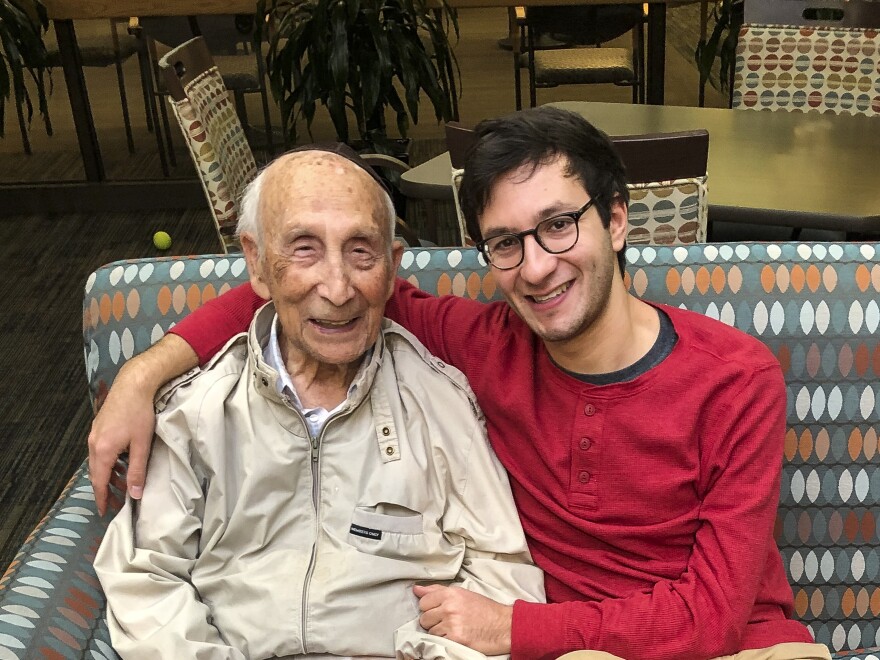My grandpa Sol Gringlas was born in August.
But every year, on April 11, I drop by his house in Michigan, or call him on the phone, to wish him a happy birthday.
That's because my grandpa considers April 11 his "second birthday."
It's the day in 1945 when his life started over again — when he was liberated from the Nordhausen concentration camp in Nazi Germany by American soldiers.
The day has always been special to my grandpa, and I never miss the ritual birthday greeting.
But this year — the 75th anniversary — is different. Because of the coronavirus, assisted-living communities such as the one where my grandpa lives are closed to visitors.
So earlier this month, my dad stood on the lawn outside his father's room, holding up a phone, while a nurse brought my grandpa out on the balcony to wave.
"They don't let you in?" my grandpa asked.
"They're trying to keep you healthy. That's why I can't come in," my dad yelled back up to the balcony.
Sol Gringlas was born in Ostrowiec, Poland. He arrived at Auschwitz in 1943.
"I saw mountains of kids shoes, I saw people's clothing, mountains," he told an oral history interviewer a few years ago. "The sky was red, at night."
Now, he's 100 years old and struggles to tell the stories.
When Sol got to Auschwitz, prisoners told him what to expect.
"And a boy said, 'Sol, that's the end.' I said: 'I lost my family, I don't care about me either.' "
After eight days at Auschwitz, he was selected to go to Nordhausen, a labor camp, where he spent two years digging rock for a Nazi factory. By 1945, Sol had been reunited with his brother. The Nazis had killed their parents and four other siblings.
Finally, on April 11, the Americans liberated Nordhausen. His brother delivered the news: "Sol, we are free! The Americans are there."
This year, the anniversary fell in the middle of Passover, the holiday that tells the story of the Jews' escape from slavery in Egypt.
With nursing home visitors prohibited for the foreseeable future, I wonder if I'll get another chance to sit at the Seder table with him.
My grandpa doesn't really understand why no one visits anymore. Sometimes, he asks to come home.
But amid a pandemic keeping much of the country on lockdown, April remains a symbol of liberation — a reminder that life can start anew, despite all the darkness.
Copyright 2022 NPR. To see more, visit https://www.npr.org.





